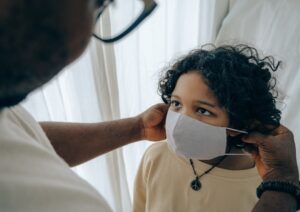Context Health care
Health care in Romania
Foreign citizens residing in Romania – including TCNs and stateless persons - have access to health services and medical insurance.

Overview
The legal act governing the Romanian health system is the Law no. 95/2006 on Health Care Reform. The law consists of 20 titles covering relevant aspects of the health sector such as: organization and functioning, financing, provision of services, primary and emergency care, coordination of the social health insurance system of Romania with the health insurance system of other European Union member states, specific provisions on practicing the medicine in Romania, etc.
The Romanian health system remains a centralized one and has two levels:
- the national level responsible for the overall coordination of the health system;
- the regional/county level responsible for providing health services/assistance at local level in accordance with the applicable legal framework.
The Romanian health system still relies on the state hospital system, although progress has been made in the private network which has grown rapidly in the last ten years, especially in major cities. However, a vast majority of the population still relies on the public health system for various reasons, such as lower income which hinders their access to private clinics and difficulties in accessing the health services, especially for people living in rural areas.
As per the previsions of the applicable legal framework, the foreign citizens residing in Romania – including third country nationals (TCNs) and stateless persons – have access to health services and may benefit from medical insurance under the same conditions as for Romanian citizens. Once the residence permit is issued by the General Inspectorate for Immigration, all TCNs may register with the health insurance system and may pay the contribution to the health fund to have free access to medical services.
If employed, the employer will pay the monthly contribution, along with other social insurance contributions such as unemployment benefits, pension, etc. If the person is not employed and does not have a monthly income, she/he can choose to pay the contribution for a 6 month period representing 1,338 RON and may benefit from the health insurance for a period of 12 months.
A person, including TCNs, can be insured even without contributing to the national health fund if she/he is in one of the following situations:
- children and young people up to the age of 18, students, young people up to 26 years old who are studying and do not have an income;
- young people up to 26 years old who come from the child protection system and are unemployed or do not receive social benefits;
- spouse and parents who do not have an income and are supported by a person who is already insured in the Romanian health system;
- persons with disabilities who do not have a salary, in certain conditions;
- persons suffering from medical conditions that are included in the national health programs, until that medical condition is cured, if they do not have an income;
- pregnant women and young mothers who do not have any revenue or have a revenue below national minimum wage (established at 2,230 RON for 2020).
All persons registered in the Romanian Health Insurance system, including TCNs, have the right to choose the medical services provider, can freely enlist with any family physician (GP) and can change the selected practitioner after at least six months. If registered in the health system, the person is also entitled to the following services:
- the basic services package, without any discrimination, according to the law;
- reimbursement of all expenses incurred during a stay in hospital;
- preventive and pro-health medical assistance services, including for early detection of medical conditions;
- medical services in outpatient facilities as well as in hospitals that are under contract with social health insurance offices;
- emergency medical services;
- some dental assistance services;
- physio-therapy and recovery treatment;
- medical devices;
- medical care provided at home, etc.
It is also important to note that if a person has not paid the mandatory health insurance, she/he can receive a free package of medical services that is established under the framework contract: medical/surgical emergencies, medical conditions that have an epidemic potential, and those listed in the National Immunization Program, monitoring the evolution of pregnancy and post-natal women, family planning services. All hospitals have an obligation to provide first aid and emergency medical assistance to any person in a critical state of health. In case of an emergency, anyone can call 112 (free number) for an ambulance. The ambulance service is free of charge and the person can speak in his/her mother tongue.
The main challenges faced by TCNs in accessing the health services are: lack of information on the registration process in the health insurance system; bureaucracy; unfamiliarity with local health care services; language barriers; lack of financial resources in case of vulnerable persons; limited access to hospitals/health services especially in rural areas and small cities; costs of the health service not covered by the health insurance; differing interpretation of legal framework at local level, by administrative or medical staff.
Covid-19
In the context of the Covid 19 pandemic, the state of emergency was established in Romania on the 16th March 2020, thus restricting certain rights such as freedom of movement and access to certain facilities, while non-essential businesses were closed.
The government had serious concerns that the healthcare system will be overwhelmed as the infection rate continued to increase and hospitals faced serious issues in managing the high number of patients. One of the biggest challenge for the authorities, alongside with the poor/limited infrastructure and the brain drain of the specialized medical staff, was finding a way to deal with over one million Romanian citizens returned home from abroad after losing their jobs or deciding to return back home for the spring holidays, a normal phenomenon for that time of the year.
To avoid the community spread of the virus, the government imposed some measures aimed at preventing the overburdening of the healthcare system during the first months of the epidemic. By early May, with fewer cases, measures were eased.
Covid-19 pandemic has emphasized that the Romanian health system still needs investments in both infrastructure and human capital in terms of specialized medical staff.
Do you want to share your project with our community and stakeholders?
Context Health care
Health care in Slovenia
Overview Health care in Slovenia is organised primarily through the Health Insurance Institute […]
Overview Health care in Slovenia is organised primarily through the Health Insurance Institute […]
Context Health care
Health care in the Netherlands
Overview In 2006, the Health Insurance Act applied the rule that all residents […]
Overview In 2006, the Health Insurance Act applied the rule that all residents […]

